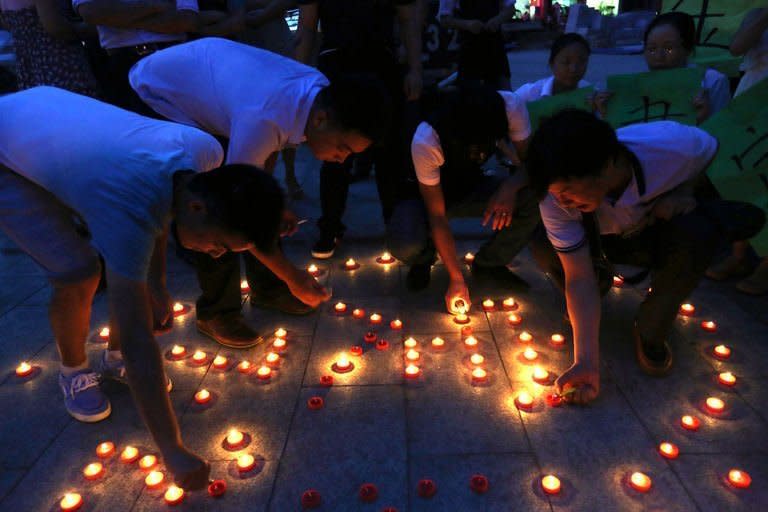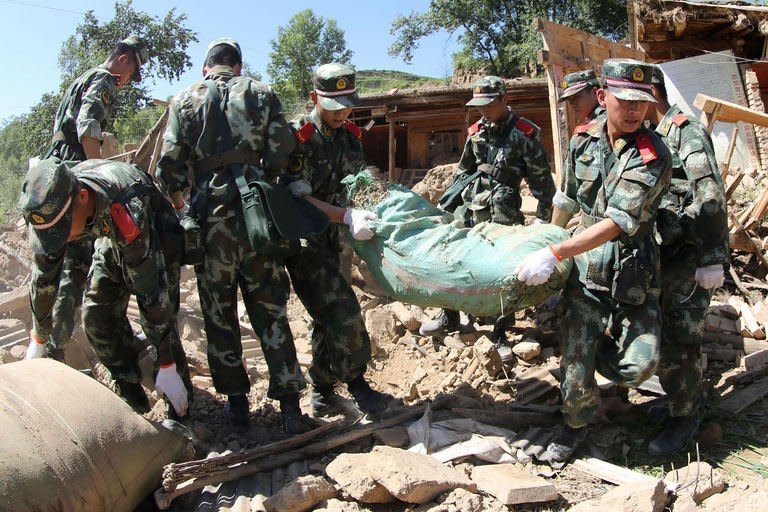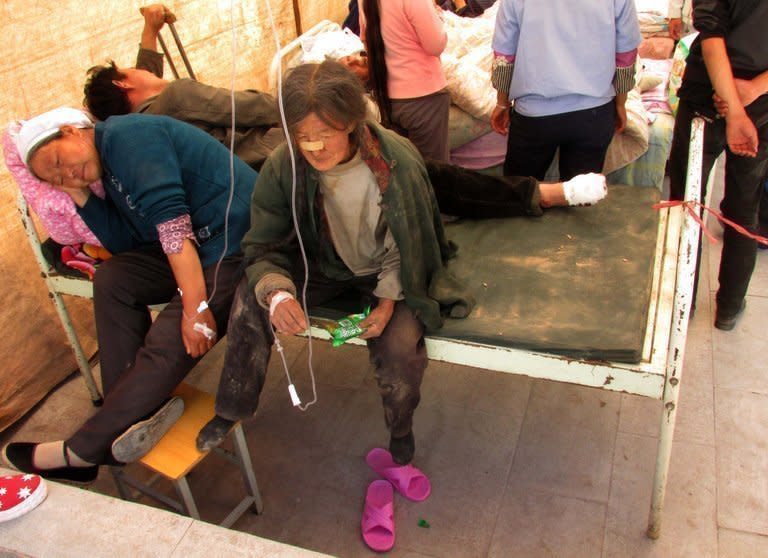China quake survivors bury their dead
The traumatised survivors of two shallow earthquakes that killed at least 94 people in China began burying their dead Tuesday, as they struggled with the devastation left behind. Across the disaster zone in the northwestern province of Gansu, houses crumbled into rubble when the twin tremors struck on Monday morning. At least 94 people were killed, China's official Xinhua news agency reported citing local authorities, with 1,000 more injured and 51,800 homes collapsing. One person was still missing. On a hill overlooking a deep valley just outside Lula village in Meichuan, the worst-affected township, about 25 men carried the coffin of Li Xueye. The 22-year-old was crushed to death when his stone and mud house collapsed on him as he slept. "The parents are both at home crying," one of the villagers told AFP, as the rest of the group placed the coffin in the freshly dug grave. In the village a seven-year-old boy lay in a coffin surrounded by incense and candles as his migrant worker parents made their way home from Shanghai. "Of course she cried when I told her he had died," said Dong Kong's uncle Wang Pengfei, of the moment he relayed the news to his sister. The two tremors had magnitudes of 5.9 and 5.6 according to the US Geological Survey, but were only 10 kilometres (six miles) deep. Much of the energy released was transmitted to the surface, where it wreaked havoc. Officials said more than 60 people were killed in Meichuan. In another village in the area Bo Yonghu, 25, stared solemnly at the remains of her family's mud and stone home. The back wall had been caved in by boulders crashing down the hillside behind. "I thought it was going to be completely swallowed by the mountain," she said. "I will not be entering the house again. Not ever." She, her parents, brother and sister had one bed to sleep on in their courtyard, under plastic sheeting nailed to four poles. Neighbour Yang Su Xiao, 18, the only family member at home when the earthquake struck, immediately ran outside and turned to see her bedroom reduced to rubble. "I know I had a lucky escape," she said. "I am glad we are all not injured, but we don't know how we are going to repair the damage." Roads in the area were peppered with large boulders fallen from the surrounding mountains, and relief workers used shovels to clear a large landslide. Around 6,000 rescuers, among them armed police, firefighters, militiamen and local government staff, had been sent to the region, Xinhua said. Hundreds of aftershocks were recorded in the disaster zone, an area of dusty, jagged mountains. State broadcaster CCTV showed soldiers digging through earth and sand and seriously injured patients wrapped in blankets being put into helicopters to be taken to the nearest major hospital, in the provincial capital Lanzhou. Tent relief centres were being set up where water, instant noodles and blankets were handed out. Beijing's own China Earthquake Networks Centre put the magnitude of the larger quake at 6.6. The China Earthquake Administration said the same fault zone was linked to a magnitude 8.0 quake on July 21, 1654, Xinhua reported. The USGS rated Monday's main tremor at seven on its "shakemap", with shaking perceived to be "very strong". Much of western China is prone to earthquakes. Around 230,000 people were killed in a magnitude 8.5 tremor in Gansu in 1920. A magnitude 6.6 earthquake in neighbouring Sichuan province killed about 200 people earlier this year, five years after almost 90,000 people were killed by a huge tremor in the same province.







